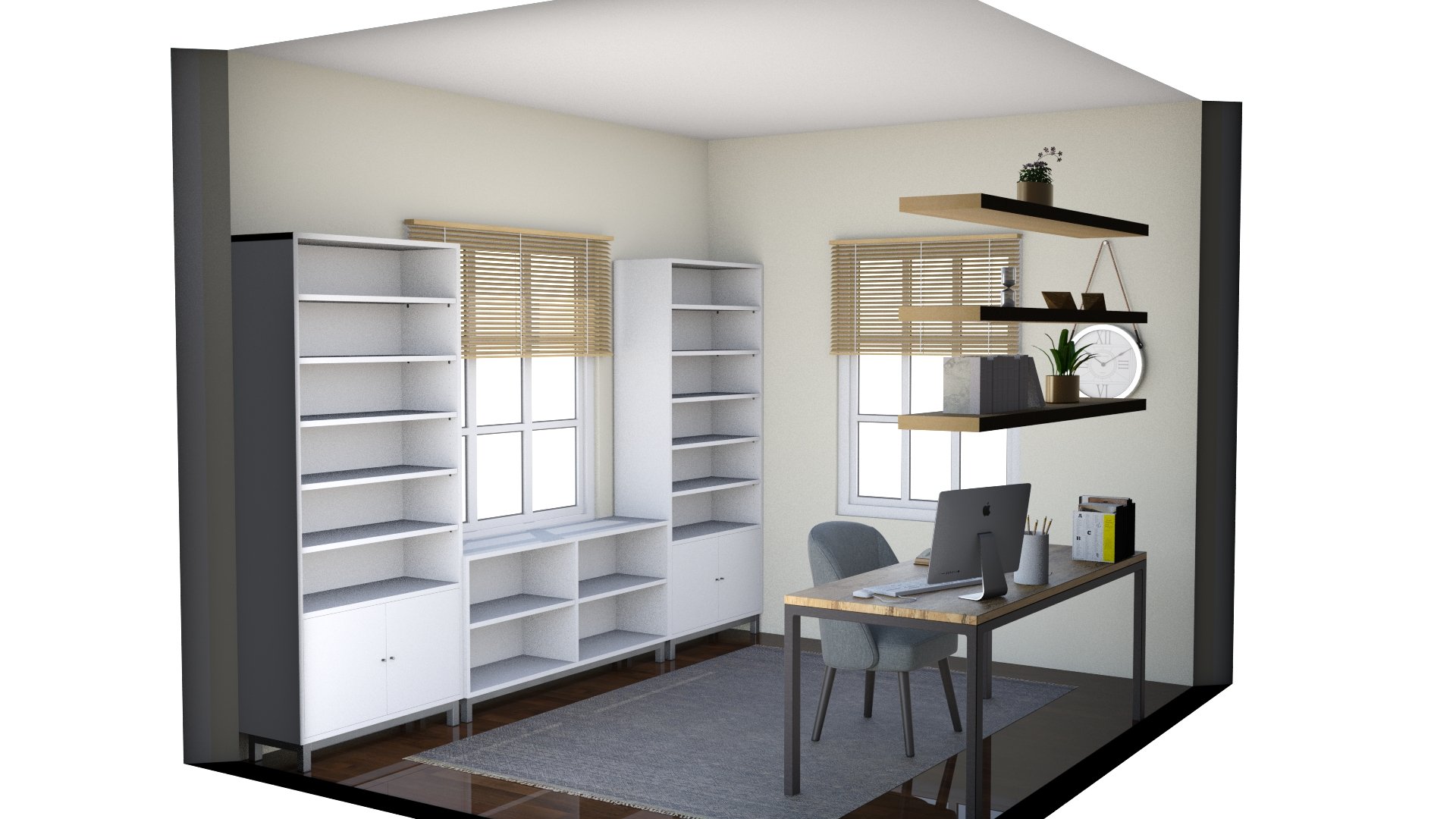
Today’s office really doesn’t require a lot in terms of equipment….think about how much you can do on your laptop, which you probably supplement with your cell phone, and the equipment footprint is pretty small. No big phones, printers, “fax machines” (if you can remember that far back)…so the actual hardware you use does not take up a lot of space. However, other items that help make for an efficient home office will probably never become obsolete, such as shelving, bookcases, file cabinets, etc. These can be for storage, security, document management and just general organization. Although technology can minimize your desk space, it does not always minimize paperwork (some things just need to be printed out and stuck in a file folder).
Of course, the ubiquitous office chair is probably the most central piece of equipment and this has not changed much despite the shrinking of the office equipment requirement. Office chairs have evolved into modernistic designs, classic club chairs, or balance balls to work your core while you work your brain. It’s important that you plan for all of the other amenities of an office space which you might take for granted. Here are some other very important elements to planning, designing, and building your home office:
- Lighting: Good blend of ambient and controlled lighting
- Noise abatement: If you have kids, a barky dog, or a talking parrot, you should consider being as far away as possible from the main activity room.
- Air conditioning / heating: Whether you are in a northern clime or a southern region, its important you have a heating and cooling system that keeps you at a comfortable 68 to 72 degrees, the most productive temperature range according to studies.
- A circulating fan can help keep a room both warm or cold, so whether it is ceiling mounted or floor mounted, make use of this fixture.
- Sound system: Like room temperature, the preference for music is entirely a personal one. Many office workers like to stream classical, smooth jazz or relaxing ambient music, and studies support this habit. Others like total silence, so if this is you, ditch the sound system and plan for sound-dampening walls.